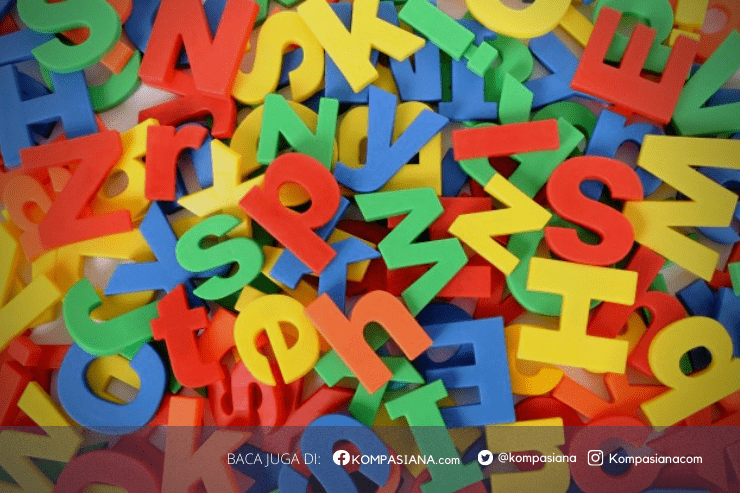Introduction
English learners should be able to understand how the English culture works; however, they can appreciate other western countries’ culture and be avoided to facing culture shock. Culture shock refers to the anxiety and feelings (of surprise, disorientation, uncertainty, confusion, etc.) felt when people have to operate within a different and unknown cultural or social environment, such as a foreign country. It grows out of the difficulties in assimilating the new culture, causing difficulty in knowing what is appropriate and what is not. This is often combined with a dislike for or even disgust (moral or aesthetical) with certain aspects of the new or different culture. Learning cross cultural understanding is a main priority for English learners which it sometimes is related to cultural communication (also frequently referred to as intercultural communication, which is also used in a different sense, though) which is a field of study that looks at how people from differing cultural backgrounds communicate, in similar and different ways among themselves, and how they endeavor to communicate across cultures. The definition of cross cultural understanding includes how people or English learners deal with three interrelated categories; products, ideas, and behaviors, which the categories are designated as a basic culture of the countries. The three items usually called as elements of culture have a framework for facilitating the development of cross-cultural communication skills. These skills will help students/ English learner to develop an understanding of the fact that all people exhibit culturally-conditioned behaviors. The students, however, can prevent something surprising and upsetting when they dealt with people coming from English-speaking countries. This paper talks about how students are of knowledge related to cultures, especially the England culture; thus it is written with a theme: Culture shock: Understanding England customs to prevent English learners forgetting disappointed.
The England Customs
Custom is the great guide of human life,” wrote Scottish philosopher David Hume. Knowing the customs of a country is, in effect, a guide to understanding the soul of that country and its people. This segment will be intended to provide a glimpse into the unique world of England’s customs: life style, food & drink, environment.
Life style
Life style is people’s behavior showed in activity, interest, and thought related to image to reflect their rank. Life style is a frame of reference used people in natural manner which will create certain demeanor pattern. To subject how people will be appreciated is anyhow life style merely connected to how they compose an image in other people thought. To reflect this image is needed certain status symbols which will influence people’s behavior. The symbols can be a greeting, living condition and marriage.
A greeting is a cordial and often conventional gesture or expression used when welcoming, meeting, or addressing somebody. When two people meet each other, they always use a greeting as a small talk to start their conversation, for instance; the English often say “How do you do?” or “Pleased to meet you” when meeting for the first time. People usually shake hands when first introduced or when greeting and parting in business and other formal situations. Otherwise many English people will simply say “Hello” when they see each other. Among friends, women are often kissed (by men and women) lightly on one cheek; nevertheless, this way is common for close friends and relatives. The use of first names is widespread; titles such as “Mr.” and “Mrs.” are being used less frequently, even when children address adults. One thing that should be noticed is many different ‘affectionate’ names, according to which part of the England locate, for example the English call dear, dearie, flower, love, chick, chuck, me duck, me duckie, mate, guv, son, ma’am, madam, miss, sir, or treacle, according to the sex, age and location. Each of the names is of certain meaning, like the ‘affectionate’ name ‘duck’ is thought to come from the Anglo-Saxon word ‘ducis’ which was meant as a term of respect; similar to the Middle English ‘duc’, ‘duk’ which denotes a leader, commander, general; form which comes the title ‘Duke’ and the Old French word ‘ducheé’ – the territory ruled by a Duke. Another thing that related to a greeting is visiting. It is customary to respect people’s privacy by telephoning before visiting. When invited to a meal by friends, guests often bring a bottle of wine or another small gift.
When it comes to family life, English families are small (one or two children are the norm) living in a house and only 15 percent live in a flat. This is in stark contrast to families on continental Europe where flats are more popular. England’s population is around 51 million. The highest concentration is London the largest city in the country. The other main centers are Birmingham, Manchester, Sheffield and also Liverpool and Leeds becoming the last size. However, the population, especially cities having high concentration becomes government’s first issue. The apparatus has dealt with several ruling policies to build the cities. London is, as an example, of the largest area which can be an illustration for this pattern; the government work to assist people to improve and promote their sustainable communities. The government also provide people with similar life opportunities. Londoners should, however, go what the government has done. On eventually, Londoners have created their own atmosphere into a social class system which is allocated into three groups of classes; lower or working class, middle class, and upper class.
This social class system also influences marriages. In England, though one in three married couples ends in divorce, marriage ― straight and heterosexual couples ― is legal at age 16 but it usually takes place when people are in their mid- to late 20s. Instead of marriage, the trend nowadays is to marry later. Many couples are living together first for all sorts of reasons such as finance. Living together has become increasingly popular in recent years for couples. Couples would ‘live in sin’ before getting married; however, today ‘cohabiting’ (there’s still not a proper word for it) is perfectly acceptable in most circles and has also increased. It shows that in England tolerance and equality can be reached.
On balance, life style as a symbol can be expended to understand other people with different cultural backgrounds.
Food and Drink
Different people have different taste. Many people believe the proverb. However, each people can create their own perception to deal with social values. Social values sometimes can be disclosed in a custom which has been a cultural heritage for long phase. Like other people, the English has run their social values. One of which social values is British cuisine. The traditional British cuisine is substantial, yet simple and wholesome. Traditions and tastes from different parts of the British Empire have influenced the fare; then again, this impact is of major effect to the British culinary day. The culinary day is still punctuated by the three main meals of breakfast, lunch and dinner, also called breakfast, dinner and tea, depending on social class and location. A traditional English breakfast consists of any or all of the following: bacon, sausages, grilled or fried tomatoes, mushrooms, eggs, or toast. Kippers (smoked herring) or black pudding (blood pudding) may also appear on the menu. However, fewer people now eat a cooked breakfast on a regular basis, preferring various combinations of cereal, toast, juice or fruit, and tea or coffee. The midday meal is usually referred to as lunch and the evening meal as dinner or, when it is less formal, as supper. Working-class people tend to call the midday meal dinner and the meal they have in the early evening “tea.” The tradition of afternoon tea, when tea, biscuits, and cakes are enjoyed at about 4 pm, has declined. Similarly, many people no longer have more than a light lunch or snack in the middle of the day. The typical England dinner is a plate of roast beef. Traditional English dishes include roast beef and Yorkshire pudding (a baked batter usually served in muffin-sized portions) and steak and kidney pie.
Many traditional foods such as beef and potatoes have given way to poultry and pasta dishes. Fast food has also become more available, and hamburger restaurants now rival the traditional fish-and-chip shops in popularity. Numerous Chinese and Indian restaurants and pizza houses provide take-away service, and many pubs (public houses) serve anything from snacks to full meals as well as alcoholic beverages. In England a drink means any ingestible liquid, so when a local asks, ‘would you like a drink?, don’t automatically expect a gin and tonic. They might well mean a ‘cuppa’ ― a cup of tea ― England has best-known beverage. Tea is sometimes billed as the national drink, although coffee is equally popular in this day and age. This is a final of warning when the English say ‘white and black’, don’t panic. It simply means ‘do you want milk in the tea/coffee?
So, without doubt, understanding social values as a result of the cultural heritage; like the British cuisine, can appreciate other people in order to communicate across cultural.
Environment
Definition of Environment is a set of external conditions, especially those affecting a particular activity. The particular activity such as social gathering and public holidays has been daily routines for the English. Social gathering sometimes can be a special party, conducting at night, to get together all family members. In the party, they informally share one another while having some drink and dances, and sometimes end by early morning. Though all relatives get together, the English also invites people out of the relatives.
The social gathering also happens when the English celebrate public holidays. In England, Government sets the holidays in a year before; however people can arrange time to spend their holiday; where the destination, how long the time, and how much the cost. Most of banks, business and a number of museums and other places of interest are closed on public holidays (also known s Bank Holidays): New year’s Day (1 January), 2 January (Bank Holiday in Scotland), Good Friday, Easter Monday (not in Scotland), May Day Bank Holiday (first Monday in May), Spring Bank Holiday (last Monday in August, first Monday in August in Scotland), Christmas Day (25 December) and boxing Day (26) December). There are countless, diverse special events held around the country all year. Even small villages have weekly markets, and many still enact traditional customs and ceremonies, some of which are believed to date back thousands of years.
Social gathering and public holidays have gone through with a certain ritual where they converted into a particular activity as cultural heritage.
Final remarks
Cultural communication skills related to how people deal with different cultural backgrounds can be a framework for elements of a basic culture known as three interrelated categories; products, ideas, and behaviors. It, whereas, is of comprehensions in assimilating the new culture which can explore for students wanting to understand how other western cultures, especially the English social, thrive.
You can also read it in my blog: http://ediezaism.wordpress.com
http://www.lonelyplanet.com/england/london.htm
http://www.englisch-hilfen.de/en/words_list/customs_traditions.htm







